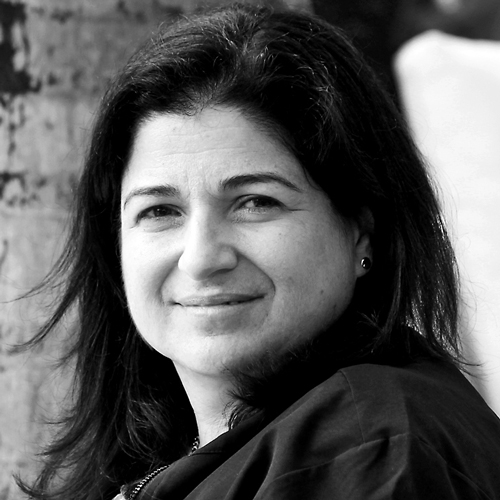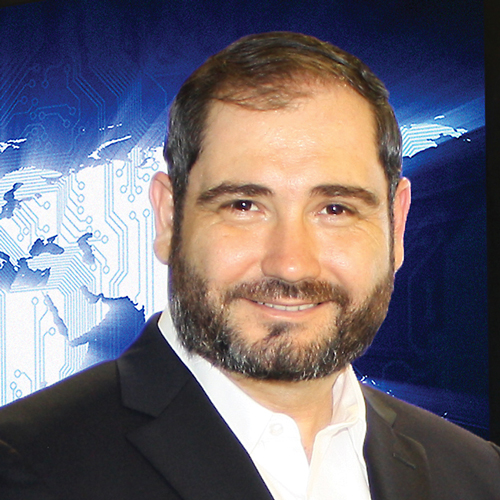Dr. Marco Mercader didn’t plan on being one of the top cardiologists in the country. When he headed off to attend Syracuse University from his native Puerto Rico, his field of study was biomedical engineering. But around that same time, his father was diagnosed with atrial fibrillation, an irregular and often rapid heart rate that can lead to strokes. His father succumbed to the condition while Mercader was still a student.
While studying biomedical engineering, Mercader worked with a doctor whose research field was in the mechanisms of arrhythmia and atrial fibrillation. Mercader became fascinated with the research and was inspired to change course and pursue a career in medicine. Over the long path of training involved in becoming a doctor, Mercader attended the State University of New York and completed his residency, cardiology, and electrophysiology fellowships at George Washington University.
“Many of my primary care physician colleagues sent me their Spanish-only language patients because better understanding for patients usually translates to better treatment.”
He has now been an associate professor at George Washington University’s School of Medicine and Health Sciences for 20 years in addition to being one of the top practicing cardiologists and cardiac electrophysiologists in the country. Dr. Mercader was selected to Washingtonian Magazine’s Top Doctors and named in the top 10 percent of doctors by the U.S. News and World Report. Most recently, he’s added two other titles to that long list of accomplishments: inventor and entrepreneur.
Mercader and colleagues at George Washington University have developed a new technology that will help patients with the most challenging cases of atrial fibrillation. The technology should significantly improve the rate of successful treatment of atrial fibrillation earlier in the game, avoid burdensome repeat procedures, and minimize procedure costs—a particularly important factor in reducing overall costs, which is a key objective of the Affordable Care Act.
It’s no accident that such a life-saving, cost-reducing innovation would come from a Hispanic physician. Dr. Mercader’s own family history is typical: according to the American Heart Association, Hispanics and Latinos face higher than average risks of cardiovascular diseases. These are risks are then made more challenging due to statistically higher levels of obesity, diabetes, high blood pressure, and cultural and economic factors that limit access to health care such as language barriers, lack of transportation, and lack of insurance.
Mercader witnessed those disparities firsthand at the start of his practice. “When I came to George Washington University, I wanted to establish a multilingual practice in cardiology,” he says. “Many of my primary care physician colleagues sent me their Spanish-only language patients because better understanding for patients usually translates to better treatment.”
Mercader says Hispanic and all other patients now are getting even better treatment under the Affordable Care Act. “Lower income groups now have insurance,” he notes. “Before, some elective procedures were not available to the uninsured.” He also points out that shifts in how care is delivered—urgent care “minute clinics” in pharmacies and other community settings, for example—reduce traffic related to simpler problems in hospitals. “We want to limit the emergency room to serious cardiac events.”
He credits his GWU colleagues with innovative service delivery, including the use of a cellphone text messaging system to help monitor blood pressure, weight, cholesterol, and diabetes management. “Cardiac health is multifactorial,” he says. “There are many risk factors that we try to control.”
Mercader’s own innovation is a means of ensuring improved health and cost control—and it is turning into a business start up. His research and engineering background led him to develop a new catheter technology that employs NADH (nicotinamide adenine dinucleotide phosphate) fluorescence to image ablation lesions, which he calls LuxCath technology.
Of the approximately two million people who currently have atrial fibrillation and the estimated 10 million people who will have this condition by the year 2030, about 20 percent have difficulty controlling it by existing means. The innovative Mercader catheter will address all patients treated with catheter ablations, which he hopes to reduce significantly, providing them with more effective treatment earlier in the diagnosis (the technology serves as both a diagnostic and treatment that helps restore the heartbeat to normal rhythm.)
To make his startup dream a reality, Dr. Mercader was connected through GWU to Allied Minds, a leading private equity firm that funds and manages medical technology product development in the early stages, typically those birthed in university research labs. Mercader met with the firm in Boston to show them the results of his research and patent applications; they agreed it had promise and decided to fund its development.
“They form new companies from these capabilities,” Mercader says. “They helped guide me in getting the patents, engineering how the product is built, what fibers to use, and other components. We are now in discussion with large medical device companies about mass producing and distributing it.” Part of the marketing process has already included exhibiting LuxCath technologies at the 2015 Heart Rhythm Society Scientific Sessions, the annual meeting for professionals in cardiac electrophysiology.
The brave new world of medicine is doing many things: solving health problems, adapting to new payment systems, treating more people, and creating cost efficiencies. Dr. Mercader has been driven to improve the likelihood that more fathers will live to see what their children accomplish, and the outlook is positive.

